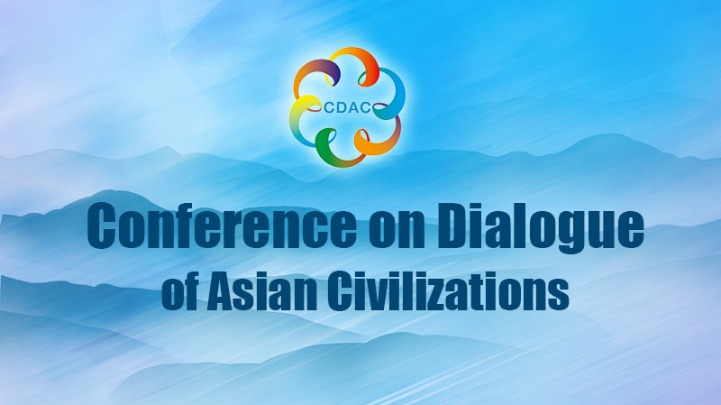Asia must also win hearts in US, Europe
By Alistair Michie | China Daily Global | Updated: 2019-05-15 09:10

The Conference on Dialogue of Asia Civilizations, which begins on Wednesday, is expected to discuss how Asian civilizations must lead in creating a global "community of shared future".
The conference made me, a British national, think about the scale of Asia compared with Europe and the United States. The numbers are striking.
According to United Nations data, just under 60 percent of the population of the world is in Asia.
In contrast, the US accounts for a mere 4 percent of the global population. Europe is home to just under 10 percent of the world's population.
For the past couple of hundred years, the 14 percent of the world's population in the US and Europe have had a profound impact on mankind. There is no doubt this 14 percent of people have delivered tremendous innovation, scientific advances and economic growth.
But it came at a great cost for the other 86 percent of the people of the world.
The creation of colonies by European nations in many countries of Asia in the past 400 years caused great hardship and subjugation.
In the 19th century, the Opium Wars imposed on China by Great Britain and other nations caused terrible humiliation.
In the past four decades, there has been a remarkable change in Asia, with China in the lead. In the past 40 years, China has modernized at a speed and scale unprecedented in human history.
At the same time, Europe and the US have entered a period of economic and political crisis.
The 2008 financial crisis, which started in the US, very nearly broke the international banking system.
The political systems in many European nations are badly broken, which is creating dangerous forces of nationalism and anti-globalization.
President Xi Jinping has been evolving a new foreign policy for China since 2012 that can be described as an appeal to Asia first, and then to the world, to create a "community of common destiny" or a "community of shared future".
Since then, Xi has stressed the principles of mutual respect, mutual understanding and mutual learning between all nations. This is a powerful and positive message proposing a dialogue of civilizations that can deliver the "community of shared future".
This embraces concepts with which Asia is already reaching out to the world. Examples are the Five Principles of Peaceful Co-existence, jointly proposed by China, India and what is now Myanmar in the 1950s; China's reform and opening-up policies; and the Belt and Road Initiative and Asian Infrastructure Investment Bank. These all deliver tangible connectivity. All are crucial for delivery of the global community.
My organization, the British East Asia Council, took inspiration from other examples of Asian connectivity, such as "people to people" dialogue.
The new connectivity in foreign policy from Asia and China gives me great hope that a sustainable and peaceful world is possible.
This Asian foreign policy shift is of great importance. The reason is that the world faces immense challenges that can only be solved through the close collaboration of all civilizations.
The key for Asia is to win the hearts and minds of the 14 percent of the global population in the US and Europe. Many Europeans and Americans fear the changes they see in the world and do not begin to understand the rise of Asia.
This poses a great communication challenge for Asia.
Persuading Europe, the US and Asia to proactively participate in a "community of shared future" is going to require fresh and innovative thinking about how Asia communicates.
Delivering a "community of shared future" means a determined commitment to mutual learning about the deep differences between civilizations. It will be a huge challenge, but it is solvable.
The author is secretary-general of the British East Asia Council and a winner of China's Friendship Award in 2013. The views do not necessarily reflect those of China Daily.
























